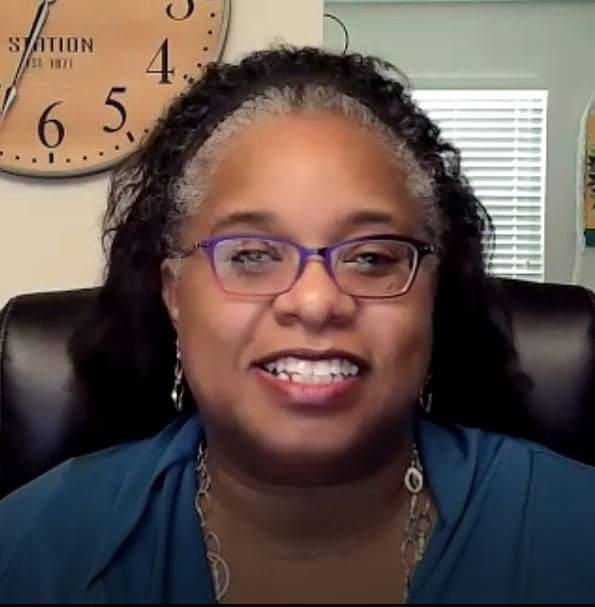If you have sarcoidosis, you MUST join the Foundation for Sarcoidosis Research (FSR) Patient Registry. With less than 200,000 of us diagnosed each year, we are the sources of data needed to advance sarcoidosis research.
FSR created the Patient Registry to share information with other sarcoidosis patients as well as clinicians and researchers. I joined the Patient Registry in 2021 because my sister had died of sarcoidosis. My sister’s disease journey shouldn’t die with her. I want to understand why my disease journey was so different from hers and what started our journey in the first place. The Registry was so easy to complete, that I don’t remember what I did to enroll. To join the registry, visit here. You are taken to a page that gives you information about your participation, what is the registry, why it is important to have a Sarcoidosis Patient Registry, what information will be collected, how FSR will protect your information and who will have access to the de-identified data. Yep, the information is de-identified! As noted on the registry page, “No research will have access to the identity of Registry participants and will not be able to contact any participant directly.”
If my memory is correct, it took me about 20 minutes to complete the survey. FSR suggests for some it may take anywhere between 40-60 minutes, depending on your particular experience. And I was able to stop and come back to it later to complete it. A lot of that time was me digging through my memory about my disease experience. After joining the Registry, FSR will reach out to you once a year to update your entries. Our health changes each year, for the worse or better and you want to make sure that your information reflects where you are now. This also allows researchers to better understand how your experience with sarcoidosis changes over time.
The Patient Registry questions allowed me to focus on my disease as a whole and not any one particular symptom. I’ve become adept at compartmentalizing my disease and only addressing one issue at a time. Completing the Registry questions allowed me the opportunity to take a step back and view my entire sarcoidosis journey. It made me see the impact this disease has had on my finances, my mental health, my family, my boyfriend, my friends, my job, and my future. I hope that the data from the Registry, though each person’s experience with sarcoidosis is different, that a researcher or clinician will see a commonality in all of us and that this commonality will provide greater access to different medications and eventually a cause and cure for this disease.
If you forgot my first sentence, let me repeat myself: ALL sarcoidosis patients need to be a part of the Registry. Being a part of the Registry does NOT mean that you volunteer to be a part of any clinical trial. If you are interested in learning about potential clinical trials, FSR will reach out to you to allow you to decide if you explore your participation further. Does that mean you have to participate? No! Side note: not all clinical trials or research involve taking a medication. Some trials and research involve testing (x-ray, CT, etc.). Others involve completing an interview (either electronic or in-person). I know this because I’ve taken part in a trial and was a candidate for another one, but after testing, didn’t meet the full requirements.
According to the FDA, only 7% of clinical trial participants, globally, and 16% domestically, are Black, while White participants represent 76% and 78% respectively. When dealing with rare diseases specifically, Black Americans only represent 9% of clinical trial participants. Black Americans are 2.5 times more likely to have sarcoidosis and are 12 times more likely to die from sarcoidosis than White Americans. How is a treatment deemed to be appropriate for all, when not all of us participated? The trial can say that “of the people who took part, it was x% effective”. Even if it is 90% effective…if only 9% of Black Americans were involved, do we really know if the drug was effective for Black Americans? With all of us participating in the Registry more information is accessible and not just staying with us and/or our specialists. You hope your specialist is talking to another specialist about your sarcoidosis case and comparing notes. But that is a hope.
With the FSR Registry, you KNOW clinicians and researchers are reviewing your sarcoidosis data and making correlations in the data. If you have sarcoidosis, learn more or join the FSR Patient Registry HERE. If you don’t have sarcoidosis, but know someone who does, point them to the stopsarcoidosis.org website or at least, have them read this post. Our sarcoidosis journey shouldn’t end with us.
The future of sarcoidosis research is in OUR hands.
For more information, please contact registry@stopsarcoidosis.org.
Join the Patient Registry

Garrie Farrow is an FSR Patient Advisory Committee Member. She has been managing pulmonary sarcoidosis for 15 years and sarcoidosis arthropathy and skin sarcoidosis for 5 years. Describing her experiences, she says, “I am living with sarcoidosis. We are frenemies. Exposing my geek side here, I call my immune system, Venom. As long as Venom has external enemies to fight, it leaves me alone and protects me.”
Garrie’s professional experience includes 16 years as an Applications Trainer for a nonprofit HMO. Garrie trains staff on how to use the Electronic Health System, SharePoint, and other applications developed within the company.
Sponsored by The Gies Foundation
